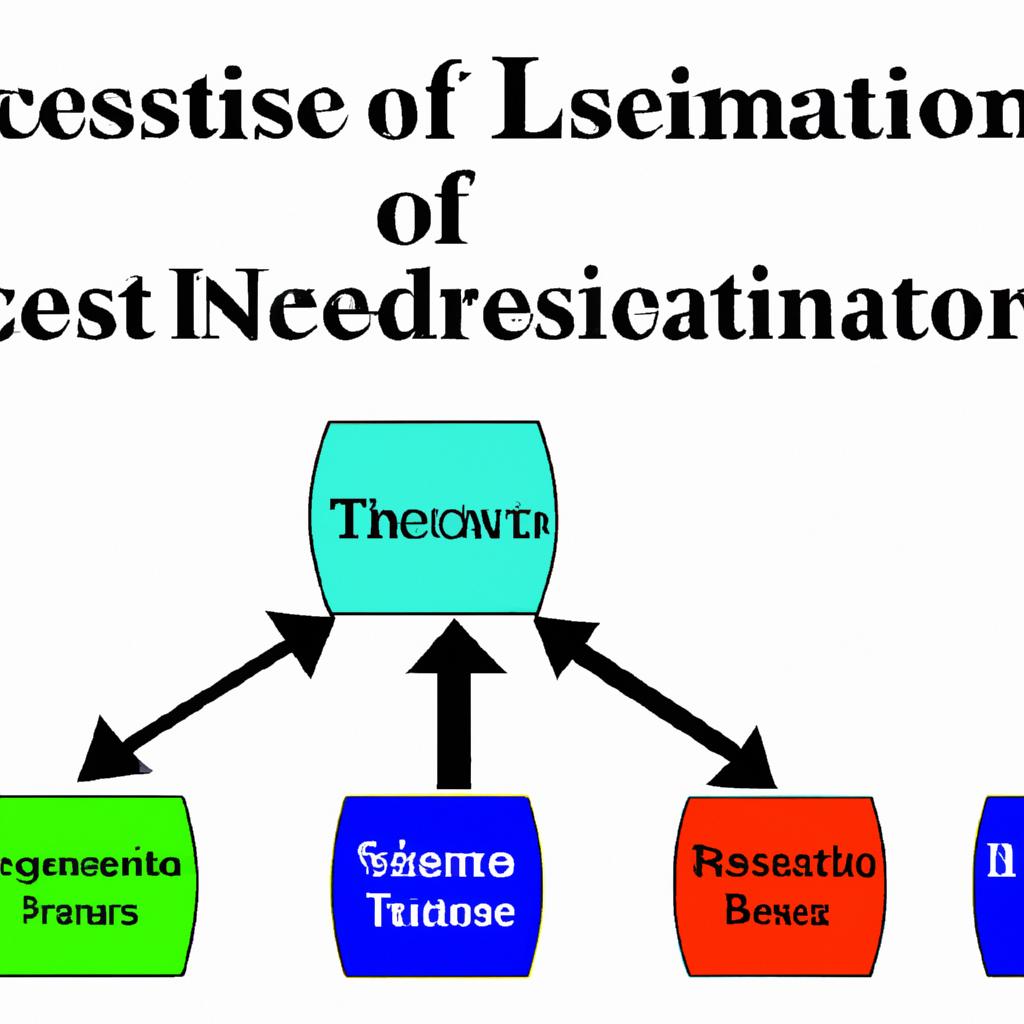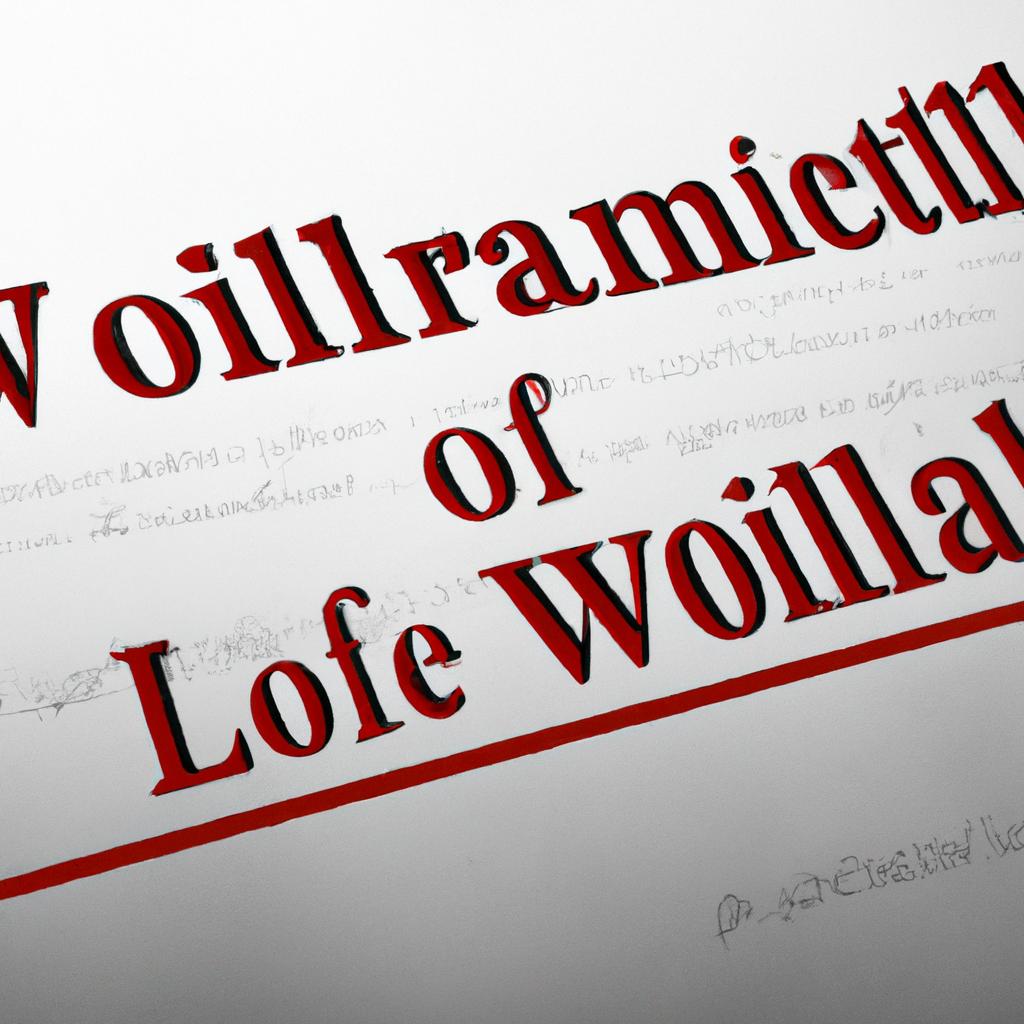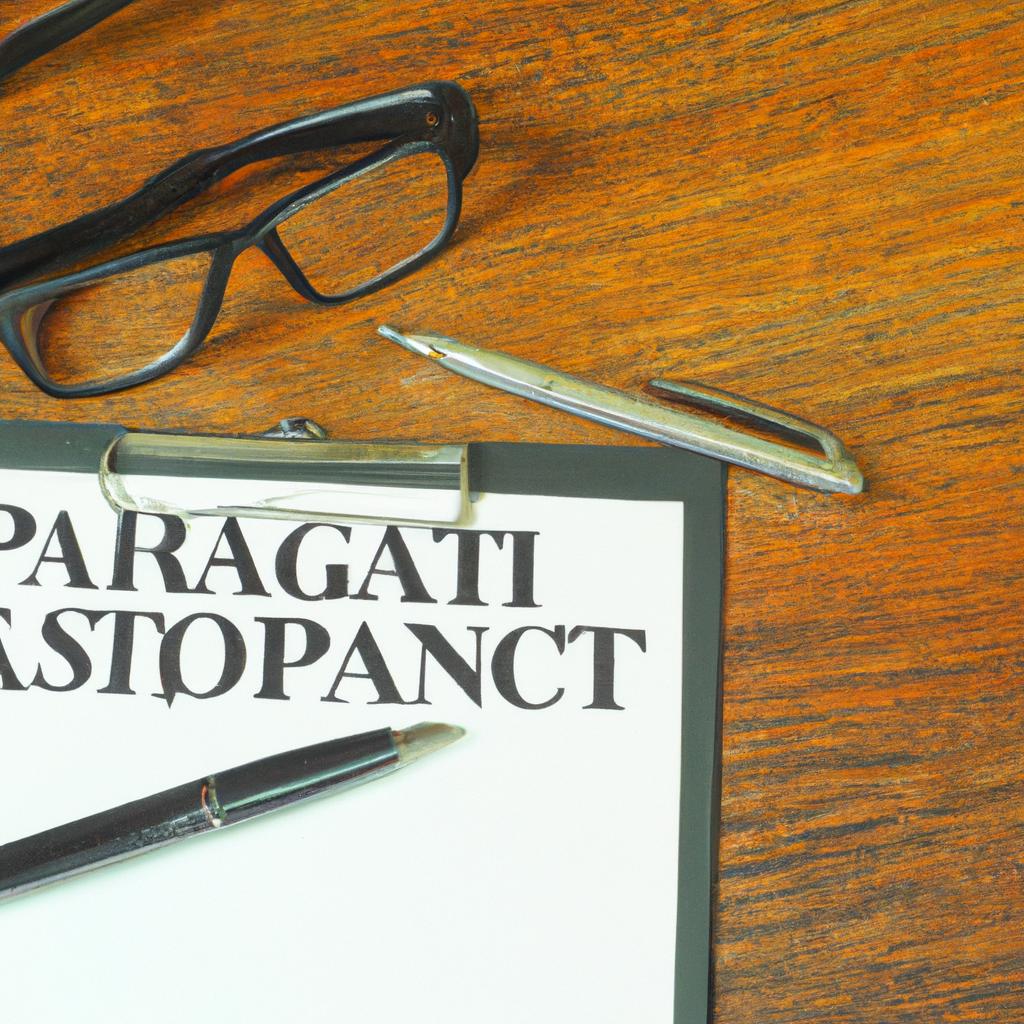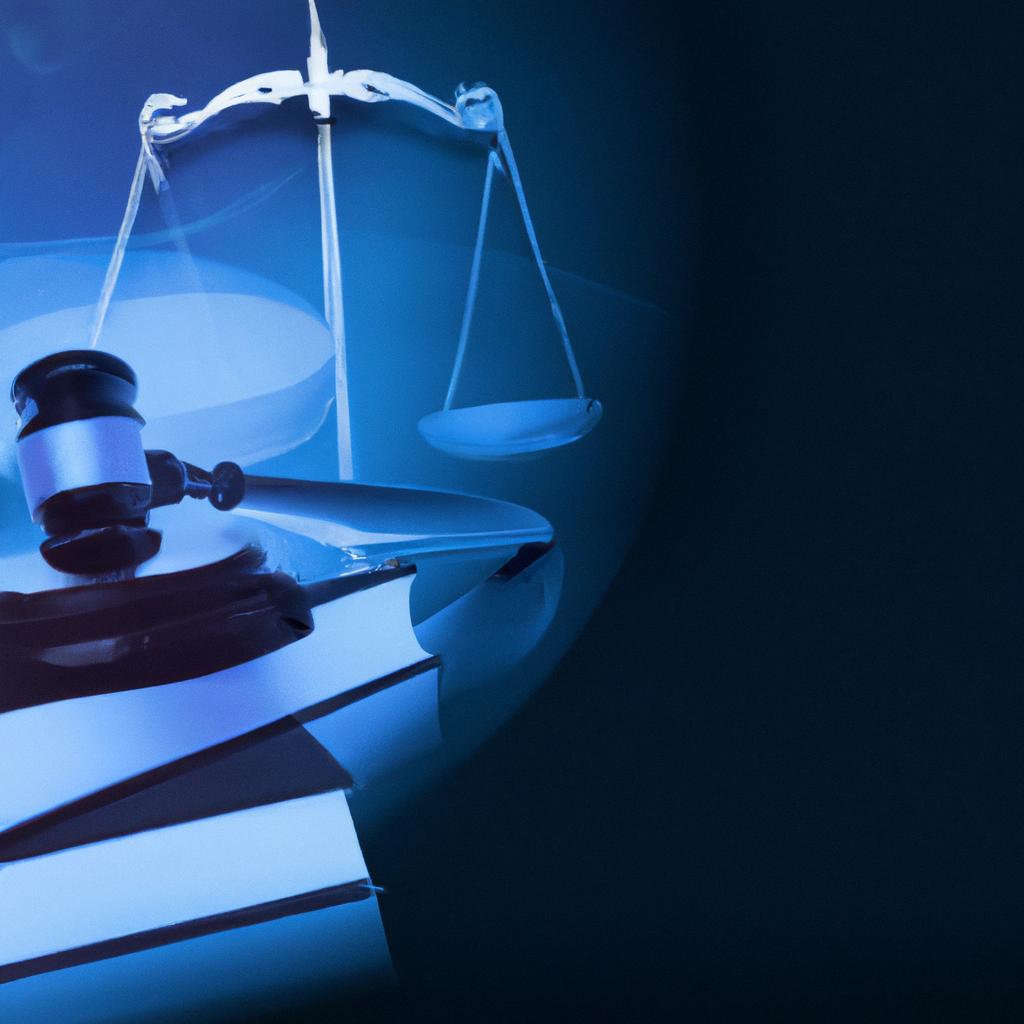In the intricate web of life’s uncertainties, one of the most overlooked yet crucial aspects is the fate of your assets in the absence of a will. As experienced legal practitioners at Morgan Legal Group in New York City, we understand the intricacies of estate planning and the importance of safeguarding your legacy. Join us as we delve into the perplexing question – if you don’t have a will, where does your money go? This article aims to unravel the complexities surrounding intestacy laws and highlight the significance of proactive estate planning to ensure your wishes are fulfilled.
Intestate Succession Laws Govern Distribution of Assets
When an individual passes away without a valid will in place, their estate is subject to intestate succession laws. These laws dictate how the deceased person’s assets are distributed among their heirs. In the absence of a will, the state will follow a set formula to determine who receives what portion of the estate. It is important to note that intestate succession laws vary from state to state, so it is crucial to consult with a knowledgeable estate planning attorney to understand how these laws may impact your specific situation.
Typically, intestate succession laws prioritize the deceased person’s closest living relatives, such as their spouse, children, parents, and siblings. Assets are distributed based on a predetermined hierarchy, with certain family members receiving a specified percentage of the estate. Without a will in place, individuals lose the ability to designate specific beneficiaries or control how their assets are distributed. To ensure that your estate is distributed according to your wishes, it is essential to work with an experienced estate planning attorney to create a comprehensive estate plan that includes a valid will and any necessary trust arrangements.

Potential Consequences of Dying Without a Will
If you pass away without a will, the distribution of your assets will be determined by the laws of intestacy in your state. This means that your property may not end up in the hands of the people you would have chosen. Instead, the court will decide how your assets should be distributed, which can lead to unintended consequences.
Some include:
- Assets going to distant relatives: Without a will, your property may end up going to distant relatives instead of close friends or loved ones.
- Increased likelihood of disputes: When there is no clear direction on how to distribute your assets, it can lead to disagreements and disputes among family members.
| Assets | Distribution |
|---|---|
| Real Estate | Depends on state laws |
| Bank Accounts | May go to next of kin |

Considerations for Designating Beneficiaries
When it comes to designating beneficiaries, it is important to consider all aspects of where your assets will go in the event of your passing. If you do not have a will in place, your money will typically go through the probate process, where the state will determine how to distribute your assets. This can lead to lengthy legal battles, delays in distributing assets, and potential disputes among family members.
By designating beneficiaries in your will or through other legal documents, you can ensure that your assets are distributed according to your wishes. This can help to avoid probate, minimize estate taxes, and provide a clear plan for your loved ones after you are gone. It is important to regularly review and update your beneficiary designations to reflect any changes in your life circumstances, such as marriage, divorce, births, or deaths in the family.

Importance of Consulting with an Estate Planning Attorney
When you pass away without a will, also known as dying intestate, your estate will be distributed according to the laws of your state. This means that your assets may not end up in the hands of the people you would have chosen. Consulting with an estate planning attorney is crucial in ensuring that your wishes are carried out and that your loved ones are provided for.
An experienced estate planning attorney can help you navigate the complexities of estate planning laws, minimize estate taxes, and protect your assets from creditors. They can also help you create a comprehensive estate plan that includes a will, trusts, powers of attorney, and healthcare directives. By consulting with an estate planning attorney, you can have peace of mind knowing that your assets will be distributed according to your wishes and that your loved ones will be taken care of after you’re gone.
Q&A
Q: What happens to my money if I die without a will?
A: If you die without a will, your money and assets will be distributed according to the laws of intestacy in your state or country.
Q: Who decides how my money is distributed if I don’t have a will?
A: Typically, a court-appointed administrator will be responsible for distributing your assets according to the laws of intestacy.
Q: Will my loved ones receive any of my money if I don’t have a will?
A: Your money will be distributed to your closest living relatives, such as your spouse, children, or parents, depending on the laws of intestacy in your jurisdiction.
Q: Can I specify who receives my money if I don’t have a will?
A: Unfortunately, without a will, you will not be able to control how your assets are distributed after your death.
Q: What are the potential drawbacks of not having a will?
A: Without a will, your loved ones may not receive the assets you intended for them, and there may be legal disputes over the distribution of your estate.
Q: How can I ensure my money goes to the right people if I don’t have a will?
A: It’s important to consult with a legal professional to understand the laws of intestacy in your jurisdiction and take steps to create a will or estate plan to ensure your assets are distributed according to your wishes.
In Summary
In conclusion, the importance of having a will cannot be overstated. Without one, the fate of your hard-earned money and assets may be left up to chance. By taking the time to create a will, you can ensure that your wishes are carried out and your loved ones are taken care of after you’re gone. Don’t leave your financial legacy to uncertainty – make sure your money goes where you want it to by creating a will today.
 In today’s fast-paced world, thinking about the future and planning for the unexpected may not be at the top of everyone’s to-do list. But when it comes to your finances, having a plan in place is essential for ensuring that your hard-earned money goes where you want it to after your passing. One important way to ensure this is by having a will in place. However, if you haven’t yet created a will, you may be wondering what will happen to your money when you’re no longer here. In this article, we’ll delve into the answer to the question “if you don’t have a will, where does your money go?” and discuss the importance of having a will in place.
In today’s fast-paced world, thinking about the future and planning for the unexpected may not be at the top of everyone’s to-do list. But when it comes to your finances, having a plan in place is essential for ensuring that your hard-earned money goes where you want it to after your passing. One important way to ensure this is by having a will in place. However, if you haven’t yet created a will, you may be wondering what will happen to your money when you’re no longer here. In this article, we’ll delve into the answer to the question “if you don’t have a will, where does your money go?” and discuss the importance of having a will in place.
The answer to this question can vary depending on a few factors, such as your location and whether you have any living relatives. Let’s explore some possible scenarios for what may happen to your money if you don’t have a will.
1. State laws
Each state has its own set of laws governing what happens to a person’s estate if they pass away without a will. These laws are known as “intestacy laws” and typically outline how assets are divided among surviving family members. For example, in most states, if you are married with children, your spouse will receive a portion of your assets and the remaining balance will be divided among your children. If you are unmarried and have no children, your assets may be divided among your parents or siblings. These laws can vary, so it’s essential to check with your state’s laws to see how your assets would be distributed.
2. Probate court
If you pass away without a will, your assets will most likely go through the probate process. This is a legal process that involves proving the validity of a will, gathering and valuing assets, and distributing them according to the deceased person’s wishes. If you don’t have a will, the probate court will use the intestacy laws mentioned above to determine how your assets will be divided. This process can be time-consuming, costly, and may not align with your wishes for your assets.
3. Unclaimed property
In the event that you don’t have any living relatives or close friends, and no will in place, your assets may eventually be deemed as “unclaimed property.” This means that your money would go to the state where you reside. Typically, states hold onto unclaimed property for a certain period before using it for the betterment of the community or to fund government projects. If you want your assets to go to loved ones or specific causes, having a will is crucial.
4. Wills made by the state
In some circumstances, if you don’t have a will, the state may create one on your behalf. However, this document, known as a “statutory will,” is typically a generic one that is not tailored to your specific wishes. This may not align with your true intentions for your assets, and it’s always best to have a personalized and legally binding will in place.
Why you should have a will
As evident from the scenarios above, having a will is crucial for ensuring that your assets go to the right people or causes after your passing. But there are other benefits to having a will as well. These include:
1. Choosing your beneficiaries: A will enables you to specify who will receive your assets and in what proportions. This allows you to distribute your assets as you see fit, rather than relying on state laws or the probate court.
2. Peace of mind: By creating a will, you can have peace of mind knowing that your assets will be taken care of and distributed according to your wishes after your passing. This can help alleviate the financial burden on your loved ones during an already stressful time.
3. Protecting your children: If you have minor children, a will allows you to appoint a guardian who will take care of them if something were to happen to you and your spouse.
4. Minimizing conflict: Without a clear and legally binding will, conflicts may arise among family members over who will receive what assets. This can lead to lengthy court battles and can cause emotional distress for those left behind.
5. Tax benefits: A well-planned will can minimize the taxes that your loved ones may have to pay on your assets after your passing.
In conclusion, if you don’t have a will, your assets may not go to the people or causes that you wish. This can be avoided by creating a will that clearly outlines your intentions. It’s never too early to start planning for the future and creating a will is an essential part of that. Speak to a legal professional to get started and ensure that your hard-earned money goes where you want it to, even after you’re gone.

